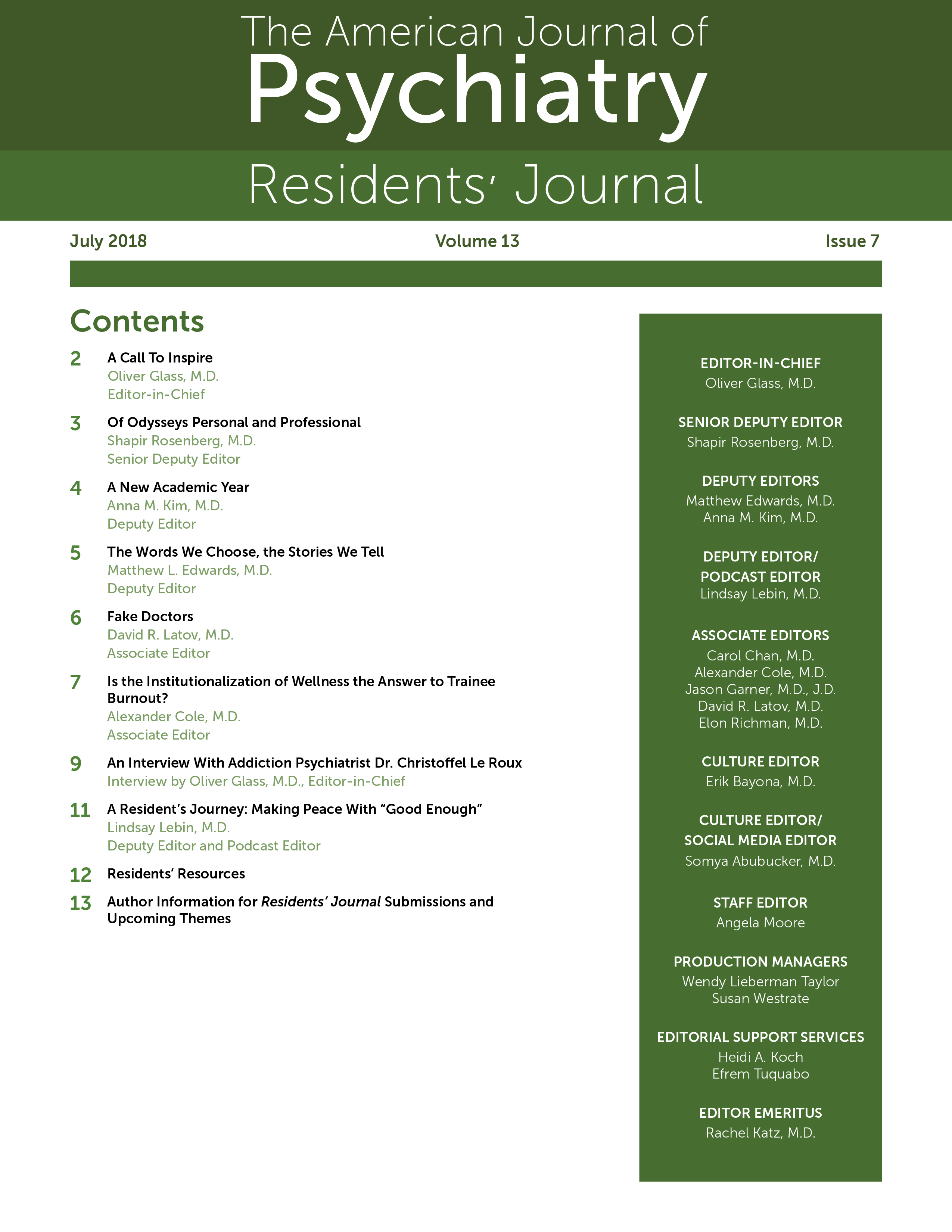Becoming Editor-in-Chief of the American Journal of Psychiatry Residents’ Journal has led me to reflect on my educational journey up to now. When I felt my calling to become a psychiatrist in medical school, I requested mentorship from Dr. Siemion Altman, a respected psychiatrist in British Columbia. His willingness to provide extensive education in the field of psychiatry prior to residency has equipped me with a solid foundation on which I was able to build. I frequently remind myself of his wisdom and interview style when confronted with challenging patient encounters. While he taught me without expecting anything in return, I feel that I am incredibly indebted to him.
In psychiatry residency, I participated in a geriatric psychiatry elective at Emory University under Dr. Adriana Hermida. This eventually led me to become one of her geriatric psychiatry fellows. Her ability to inspire has propelled me to achieve more than I would have thought possible. Most importantly, she has set an example of how important it is to lift those who have dreams but who may doubt themselves. I feel incredibly blessed to have met her.
There were many other mentors and faculty who helped me become the psychiatrist that I am today, but these two stood out by being selfless and fully devoted to pushing me forward. To them, I want to say thank you. I intend to share this dedication to all of my students, including trainees who submit papers to this journal.
My next stop on the road is forensic psychiatry, where I intend to develop competency in legal aspects that pertain to mental health. As psychiatrists, we must serve the underserved, including those who are incarcerated. Each human life has value.
I started off as Deputy Editor of this journal, from 2016 to 2017, and then advanced to Senior Deputy Editor in 2017–2018. Serving both years was a phenomenal experience. As I look back on the 2017–2018 year, I am amazed by the impact Rachel Katz, M.D., has made as Editor-in-Chief. This journal has progressed to an unprecedented level under her leadership.
Moving forward, I am going to build upon the progression that has already been made. I have expanded the editorial board to a total of 12 editors. The selected editors have come from a wide variety of backgrounds and will complement one another in the expertise that they bring. I am proud to say that the 2018–2019 editorial board will be the most diverse in the history of this journal, as introduced in this issue.
This will also be the first year that we will be accepting poetry under the Arts & Culture section. As a result, I encourage those with an interest in poetry to submit manuscripts. Sometimes a message can be conveyed only through a poem, similarly to how some patients communicate their emotions only nonverbally. Additionally, I am pleased to announce that Canadian trainees are eligible to publish in our journal and take part in the editorial board.
Finally, I am introducing three tenets that this editorial board will implement as we review articles:
This year will be one of much excitement and evolution. Let us make a difference together.
